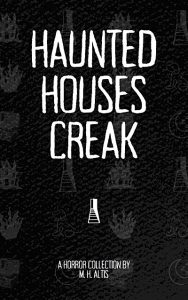 “In the writing of this book I have consulted so many different editions of the complete works and the individual plays that it would be impossible to list all of them without the bibliography becoming longer than the story itself.” ~ M. L. Rio, Author’s Note, If We Were Villains
“In the writing of this book I have consulted so many different editions of the complete works and the individual plays that it would be impossible to list all of them without the bibliography becoming longer than the story itself.” ~ M. L. Rio, Author’s Note, If We Were Villains
“Here I must also acknowledge that I have ransacked Shakespeare’s entire oeuvre with giddy abandon. The fourth-year thespians speak a kind of Pidgin English so saturated with Shakespearean words and quotes and turns of phrase that it could almost be classified as a new (and, there is no denying, exceptionally pretentious) dialect.” ~ M. L. Rio, Author’s Note, If We Were Villains
This book was recommended by The Secret History subReddit members. Had I only read the Author’s Note first, my lingering questions would have been answered and it would have saved me hours, because I would have realized the only thing this book has in common with The Secret History is a group of self-absorbed college students and a murder.
The story begins with Oliver being released from prison and we soon learn that one of his classmates in college was killed, so that’s probably why he was there. But why?
At 354+ pages, this book is 150 pages too long. If not more. It’s cleverly written in the manner of a script for a play, sections are Act I, Act II, etc., and chapters are Scene 1, Scene 2, etc. It’s Shakespeare’s plays all jumbled up. Quotes and thrown in here and there according to whim and if you don’t have a working knowledge of Shakespeare, it can make no sense.
It’s very possible there were too many characters. By the end of this book, it wasn’t possible to care less about the people who weren’t murdered. No surprise. I didn’t care about the guy who was murdered, either. Richard — and I don’t consider this a spoiler because it was obvious from his first appearance that he was the intended — was a jerk. Yes. But the penalty for being a jerk isn’t death.
All of the characters could have used a lot more development. As the author herself admits, they spoke their own language based on Shakespeare’s plays. So we learned they liked Shakespeare, they attended a college that let them concentrate on that. There was a least one gay relationship. That’s what we know. Who cares?
The setting and atmosphere weren’t very developed, either. After finishing the book, I’m left wondering why it was so long. The most interesting thing — the death of Richard wasn’t interesting, it was expected — was half way through the book when Oliver visits his family for Thanksgiving and finds out, one semester from graduation, his parents are pulling the plug on paying his tuition. Even that drama doesn’t last long.
What can you say about a writer’s style when it consists of quotes from Shakespeare? I guess it takes some book learnin’ to manage that, which she has — a master’s in Shakespeare, believe it or not. So I can see why this was the central theme of her first novel. It seems to be aimed at a niche audience of which I am not a member. I have nothing against Shakespeare. But if I was in the mood for The Bard, I’d pick up his work. Not someone else borrowing his work.
I finished the book just to find out what the solution to the puzzle was. I didn’t care about the people, whether Oliver did it or not. Or whether the group stayed friends, though it would be a surprise if they did. That almost never happens, in fiction or in real life.
This book was okay for what it was. But I would definitely not recommend it to a lover of The Secret History.
3/5








